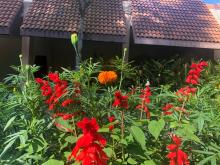
Abstract: This presentation will look at labour migration through the lens of socially reproductive labour of women non-migrants. Discussions on migration tend to focus invariably more on individual migrants and their contributions to origin households’ wellbeing, and very little attention is paid to the reverse flows: labour of non-migrant members in the origin that enables and sustains so much of migration. In large parts of India, the predominant pattern of mobility involves migration by men while the women stay behind. While not active participants themselves in the mobility, women contribute enormously to migration process through their labour that includes care and emotional work. But women’s labour is rarely the focus of academic and policy discussions on migration. Drawing on primary fieldwork, this paper seeks to highlight the contributions women non-migrants make in enabling and sustaining labour migration flows in India and shows how social processes are often central to economic pursuits, which also have the effect of exacerbating gender-based vulnerabilities of women.
About the speaker: Chetan Choithani is an Assistant Professor in the Inequality and Human Development Programme of the School of Social Sciences, National Institute of Advanced Studies. The broad disciplinary domain of Chetan’s work is development studies. Within this area, his research and teaching interests include migration and urbanisation, food and nutrition, livelihoods, gender, and social policy and how they relate to development, particularly in the Indian context.
